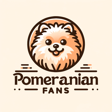Have you ever found your Pomeranian, Max, constantly licking his paws despite your efforts to discourage the behavior? Understanding the root causes behind this can be crucial in addressing this common issue among Pomeranians.
From stress-related triggers to potential health concerns, unraveling the mystery behind their licking habits is essential to provide the best care for your furry companion.
By exploring effective training methods and practical solutions, you can help Max break free from his incessant licking cycle and lead a more balanced and comfortable life.
Causes of Excessive Licking
Experiencing excessive licking in your Pomeranian can stem from various sources such as nervous behavior, skin issues, or habitual tendencies. Nervousness or anxiety might trigger your pup to lick excessively, while skin problems like allergies or irritations could also be culprits. Additionally, if your Pomeranian has developed a habit of licking, this behavior can become ingrained over time.
It’s essential to observe your dog’s licking patterns and consult with a vet to rule out any underlying health concerns. Addressing these potential triggers early on can help prevent complications such as skin sores and fur thinning. Understanding the root cause of your Pomeranian’s excessive licking is the first step towards finding effective solutions.
Training to Redirect Licking Behavior
To redirect your Pomeranian’s licking behavior, incorporate consistent training techniques that focus on positive reinforcement and replacement commands. When your Pomeranian starts licking excessively, calmly say ‘no lick’ and redirect their attention to a chew toy or a positive activity.
Reward them with praise or treats when they follow the ‘no lick’ command successfully. Be patient and consistent in your training efforts, as it may take some time for your Pomeranian to learn the new behavior.
Remember to provide plenty of toys and activities to keep them mentally stimulated and prevent boredom, which can lead to excessive licking. With time and dedication, you can help your Pomeranian break the habit of excessive licking.
Attention-Seeking Behavior Signals
To identify attention-seeking behavior signals in your Pomeranian, observe their body language and reactions when seeking interaction or affection. Your Pomeranian may nudge you, paw at you, bark, or whine persistently to gain your attention. They might also exhibit behaviors like jumping on you, bringing you toys, or sitting in front of you to make eye contact. These signals indicate their desire for interaction and affection from you.
Responding positively to these cues can reinforce good behavior and strengthen your bond. However, it’s essential to provide attention in a balanced way to prevent excessive licking or dependence on attention-seeking behaviors. Understanding and responding to your Pomeranian’s attention signals can lead to a harmonious relationship built on mutual understanding and care.
Health Issues Related to Licking
When addressing health issues related to excessive licking in Pomeranians, understanding the underlying causes is crucial for effective treatment and prevention. Excessive licking can lead to skin damage, fur discoloration, and even infections from irritants.
Licking paws may indicate itching, discomfort, or underlying health problems like allergies or orthopedic issues. Harmful licking behaviors shouldn’t be ignored, as they can exacerbate skin problems and lead to sores.
If you notice your Pomeranian excessively licking, it’s essential to consult a vet to rule out food allergies, hypothyroidism, or other health concerns. By addressing the root cause of the licking behavior, you can help your furry friend lead a healthier and more comfortable life.
Preventing Compulsive Licking
Addressing compulsive licking in Pomeranians requires consistent training and proactive measures to prevent further harm and promote healthier habits. To prevent your Pomeranian from developing compulsive licking tendencies, start by identifying and addressing any underlying causes such as anxiety or boredom.
Redirect their focus by providing interactive toys, engaging in regular exercise, and offering mental stimulation. Implement a structured routine and positive reinforcement to discourage excessive licking behavior. Utilize deterrents like bitter-tasting solutions or protective items to prevent physical harm from excessive licking.
Consistently monitor your Pomeranian’s behavior and seek professional guidance if needed to ensure their well-being. By taking proactive steps and being attentive to your Pomeranian’s needs, you can help them overcome compulsive licking tendencies and foster a healthier lifestyle.
Strategies for Addressing Separation Anxiety
When helping your Pomeranian navigate separation anxiety, it’s essential to establish a comforting environment that promotes feelings of security and contentment. Hiring someone to walk your dog, returning home at lunchtime, or providing soothing toys can help ease their distress.
Use toys that dispense treats, leave background noise like a radio or TV on, and leave items with your scent to provide a sense of familiarity. Redirect attention from licking by encouraging chewing toys, supervising with tethering, and not rewarding licking behavior with treats.
Ensure toys are readily available to distract your dog from excessive licking and offer comfort during your absence. By implementing these strategies, you can help alleviate your Pomeranian’s separation anxiety and reduce their licking tendencies.
Additional Pomeranian Care Tips
To ensure the well-being of your Pomeranian, consider exploring resources on suitable car seats, harnesses, and collars for their safety and comfort.
Properly securing your Pomeranian in a car seat can prevent injuries during travel, while a well-fitted harness can offer both control and comfort during walks. Collars should be chosen with care to avoid discomfort or choking hazards.
Additionally, investing in grooming tools suited for Pomeranians, such as brushes for their thick coats and nail clippers for their small paws, can contribute to their overall health and well-being. Remember to research and select products that are specifically designed for Pomeranians to ensure they receive the best care possible.
Conclusion
In conclusion, understanding the reasons behind your Pomeranian’s excessive licking is the first step towards addressing this behavior.
By implementing training techniques, redirecting attention-seeking behaviors, and monitoring for potential health issues, you can help your furry friend overcome their licking woes.
Remember to show patience, consistency, and love as you work towards a happier and healthier life for your beloved Pomeranian.
